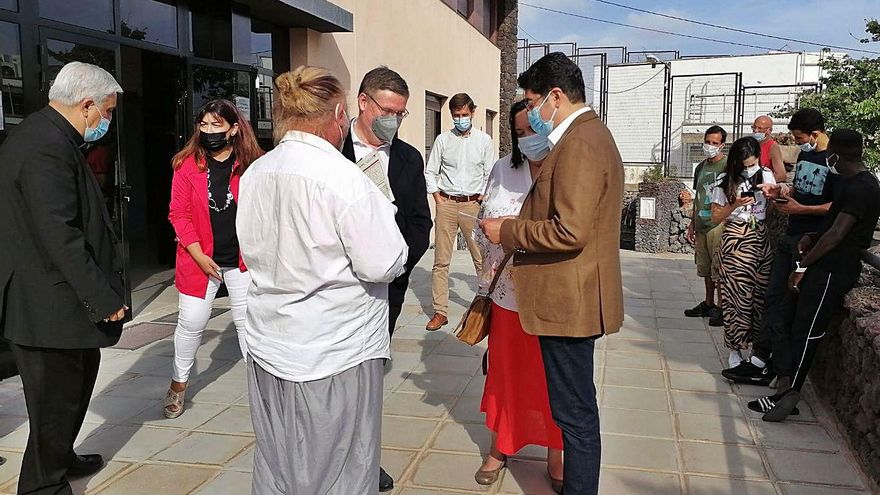
The Santo Hermano Pedro project is a low-demand resource that, in addition to covering human needs for security and physical and psychological protection, including food, hygiene and accommodation, offers socio-educational care from a multidisciplinary team , made up of five social education professionals and a social worker. With this, Cáritas Diocesana de Tenerife guarantees coverage from a comprehensive approach, as established in the Institution’s Social Action Model.
Juan Rognoni, director of Cáritas Diocesana de Tenerife, highlighted that The start-up of this center responds to a “need” of the group of homeless people in the south of the island. Rognoni stressed that the technical team will work with the participants through “an accompaniment process” so that they can get out of exclusion as soon as possible and reintegrate into society.
Pedro Martín, president of the Cabildo de Tenerife, indicated that he is proud to see the commitment of the Church in projects like this one. “We have a lot to learn the administrations,” he said, while the general director of Social Policies of the Canarian Government, Francisco Javier Bermúdez, assured that services like this are “guarantee of citizenship.”
More collaboration
The first deputy mayor of the Arona City Council, Raquel García, underlined the need for “greater cooperation between the administrations so that the whole of the South region has a powerful and shared social shield”, while the bishop, Bernardo Álvarez, emphasized that “the objective of this type of resources is that the people who are in it manage to leave, as soon as possible, because that will mean that they have overcome those complicated stages of their lives.
The resource is located in Arona and is financed by the Cabildo de Tenerife and the Government of the Canary Islands. It has 20 parking spaces and offers its services 24 hours a day, 365 days a year.
These resources provide permanent coverage service for basic needs, such as food, hygiene, medication, transport and clothing, as well as the socio-educational attention offered by a multidisciplinary team. The entry requirement, in addition to being homeless, is to manifest a commitment to socio-educational intervention.
















